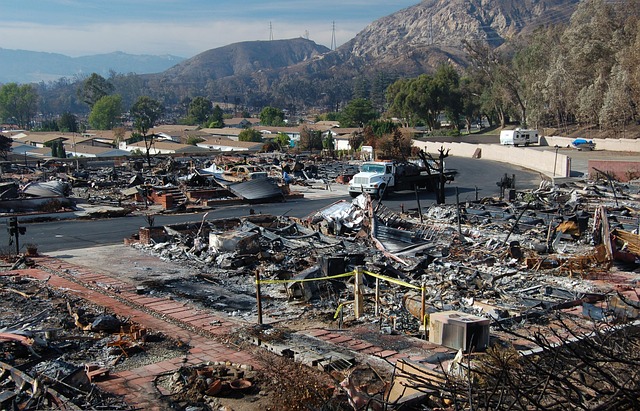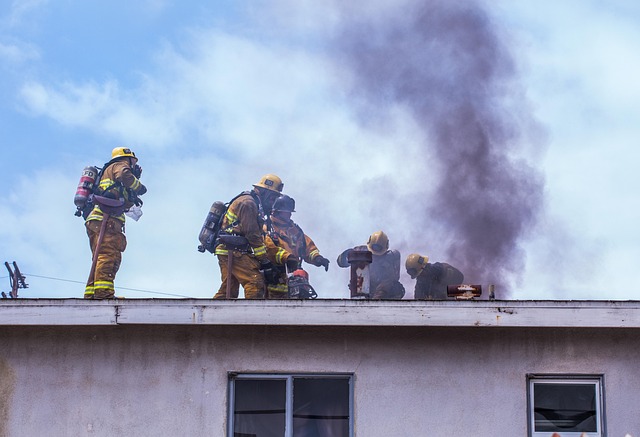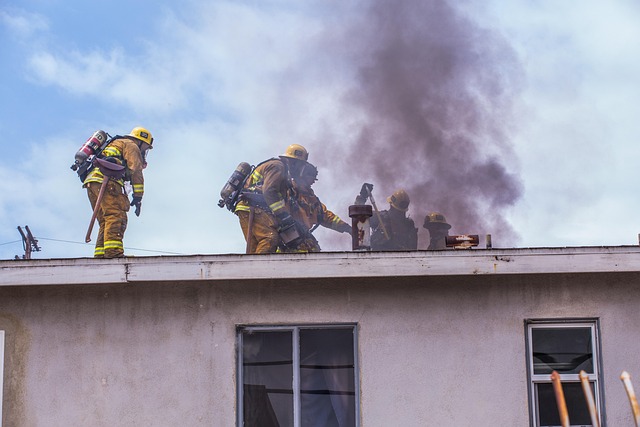In Texas, especially when selling a fire-damaged house in Houston, understanding your fire insurance policy is crucial. Policies cover direct physical losses, including structural damage and personal belongings, with some offering additional living expense coverage and provisions for valuable items. Homeowners should assess damage, document it thoroughly (photos, videos), contact their insurer, and consult a real estate agent familiar with the market's specific considerations to maximize resale value. The claims process requires clear communication with insurers, understanding policy coverage limits and deductibles, and marketing fire-damaged properties by emphasizing their potential for transformation. Legal considerations under Texas state laws also dictate rights and responsibilities during claim processing.
“In Texas, where homes are often facing the threat of wildfires, understanding fire insurance claims is paramount. This comprehensive guide delves into the intricacies of navigating these processes, particularly in Houston. From comprehending your coverage to assessing property value and legal considerations, we explore every step. Learn how to efficiently manage claims, including tips for selling a fire-damaged house in Houston, ensuring a smoother recovery process. Essential information for Texans seeking to protect their investments.”
- Understanding Fire Insurance Coverage in Texas
- The Process of Filing a Fire Damage Claim
- Assessing the Value of Your Fire-Damaged Property
- Common Challenges When Selling a Fire-Damaged House in Houston
- Legal Considerations and Requirements for Fire Insurance Claims
- Tips for Efficiently Navigating the Claims Process
Understanding Fire Insurance Coverage in Texas

In Texas, fire insurance claims are a critical aspect of homeownership and protection against financial loss due to devastating fires. Understanding your coverage is essential, especially when considering if you can sell a fire-damaged house in Houston. Homeowners policies typically cover direct physical loss or damage to properties caused by fires, including structural damage, personal belongings, and even certain types of business interruption.
Texas residents should review their policies carefully to know the specifics of what is covered and excluded. Some policies may include provisions for additional living expenses if you must temporarily relocate due to a fire, while others might offer coverage for the cost of repairing or replacing valuable items like jewelry or artwork. Being aware of these details can help homeowners navigate the claims process effectively and determine their options when facing a fire-damaged property in Houston.
The Process of Filing a Fire Damage Claim

After a fire, the process of filing a claim can seem overwhelming, but understanding the steps can make it easier. In Texas, including areas like Houston, homeowners should first assess the damage and document the losses. This involves taking photos and creating an inventory of damaged or destroyed items, which is crucial for the insurance company to evaluate the extent of the fire’s impact on your property.
Next, contact your insurance provider to report the incident. They will guide you through their specific claims process, which typically includes filing a formal claim form. Be sure to keep records of all communications and documents related to the claim, including estimates for repairs or replacements, as these will support your case. If planning to sell a fire-damaged house in Houston, consult with an agent who understands the market’s unique considerations and can offer advice on handling claims to maximize resale value.
Assessing the Value of Your Fire-Damaged Property

When assessing the value of your fire-damaged property in Houston, it’s crucial to document everything meticulously. Take photos and videos of all affected areas, noting the extent of damage to both structural elements and personal belongings. Keep receipts for any temporary repairs or rental accommodations you’ve incurred as a result of the fire. This documentation will be vital when filing your fire insurance claim.
Remember that even if you’re considering selling a fire-damaged house in Houston, insurers typically require a comprehensive assessment of the property’s current state. They’ll base their claim payout on this evaluation, so ensuring accuracy and transparency is essential. It’s also important to understand your policy’s coverage limits and deductibles before beginning the claims process.
Common Challenges When Selling a Fire-Damaged House in Houston

Selling a fire-damaged house in Houston can be a challenging process due to several unique factors. One of the primary concerns for potential buyers is the cost of repairs, which can often be significant. Fire damage may leave visible scars on the property, and even hidden structural issues that require professional attention. Appraising the true value of such a home accurately is difficult, as it needs to factor in both the physical restoration and emotional impact on future occupants.
Additionally, navigating insurance claims and settlement processes can be complex. Homeowners must coordinate with their insurance providers, who may have specific requirements for documenting and approving repairs. In some cases, especially if the damage is extensive, buyers might hesitate due to uncertainty about the lengthy renovation process and potential hidden costs. Therefore, marketing a fire-damaged house in Houston requires a transparent approach, highlighting any known issues while also showcasing the potential for a beautiful transformation.
Legal Considerations and Requirements for Fire Insurance Claims

When filing a fire insurance claim in Texas, understanding legal considerations is crucial. Homeowners or business owners who intend to sell their fire-damaged properties in Houston must be aware of the specific requirements and regulations. In Texas, insurance policies are regulated by state laws, which outline the rights and responsibilities of policyholders during the claims process.
One key aspect to consider is the scope of coverage. Fire insurance policies vary, so reviewing the policy documents is essential. Policyholders should ensure they understand what is covered under their particular policy, including any deductibles or exclusions. Additionally, documenting the damage thoroughly is vital. This includes taking photos and videos of the fire-damaged property as well as keeping records of all repairs and expenses incurred during the restoration process. These steps are necessary when aiming to sell a fire-damaged house in Houston, as insurance providers require comprehensive evidence to process claims efficiently.
Tips for Efficiently Navigating the Claims Process

Navigating the claims process after a fire can be challenging, but with the right approach, homeowners in Houston can efficiently manage the situation. One crucial step is to document every detail; take photos and keep records of all damage, including any structural issues or personal belongings affected. This evidence will be vital when presenting your case to the insurance company.
Additionally, it’s essential to understand your policy coverage and communicate clearly with your insurer. If you’re considering selling a fire-damaged house in Houston, know that many buyers are willing to purchase such properties, especially if repairs are feasible. Some insurance policies may even cover rebuilding costs, so reviewing your policy and keeping open lines of communication with your agent is key to a smoother claims process.
Fire insurance claims in Texas can be complex, especially after a devastating fire. Understanding your coverage, navigating the claim process efficiently, and addressing legal considerations are crucial steps for homeowners in Houston looking to rebuild or sell their fire-damaged properties. While challenges like assessing damage and selling a fire damaged house in Houston exist, being informed and prepared can make all the difference in a timely recovery. Remember that efficient navigation of these processes is key, ensuring you receive the compensation needed to move forward, whether that’s rebuilding or moving on.






